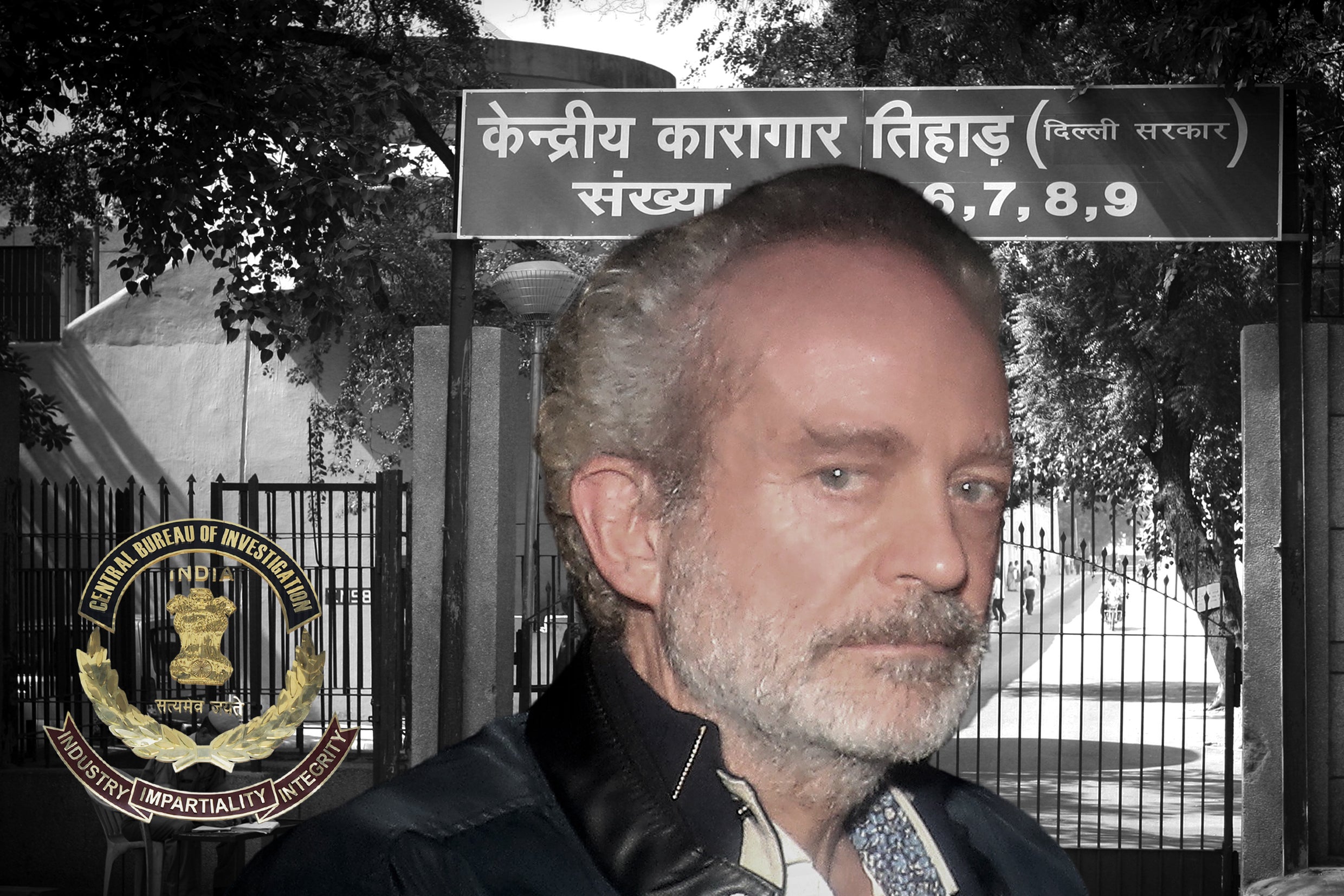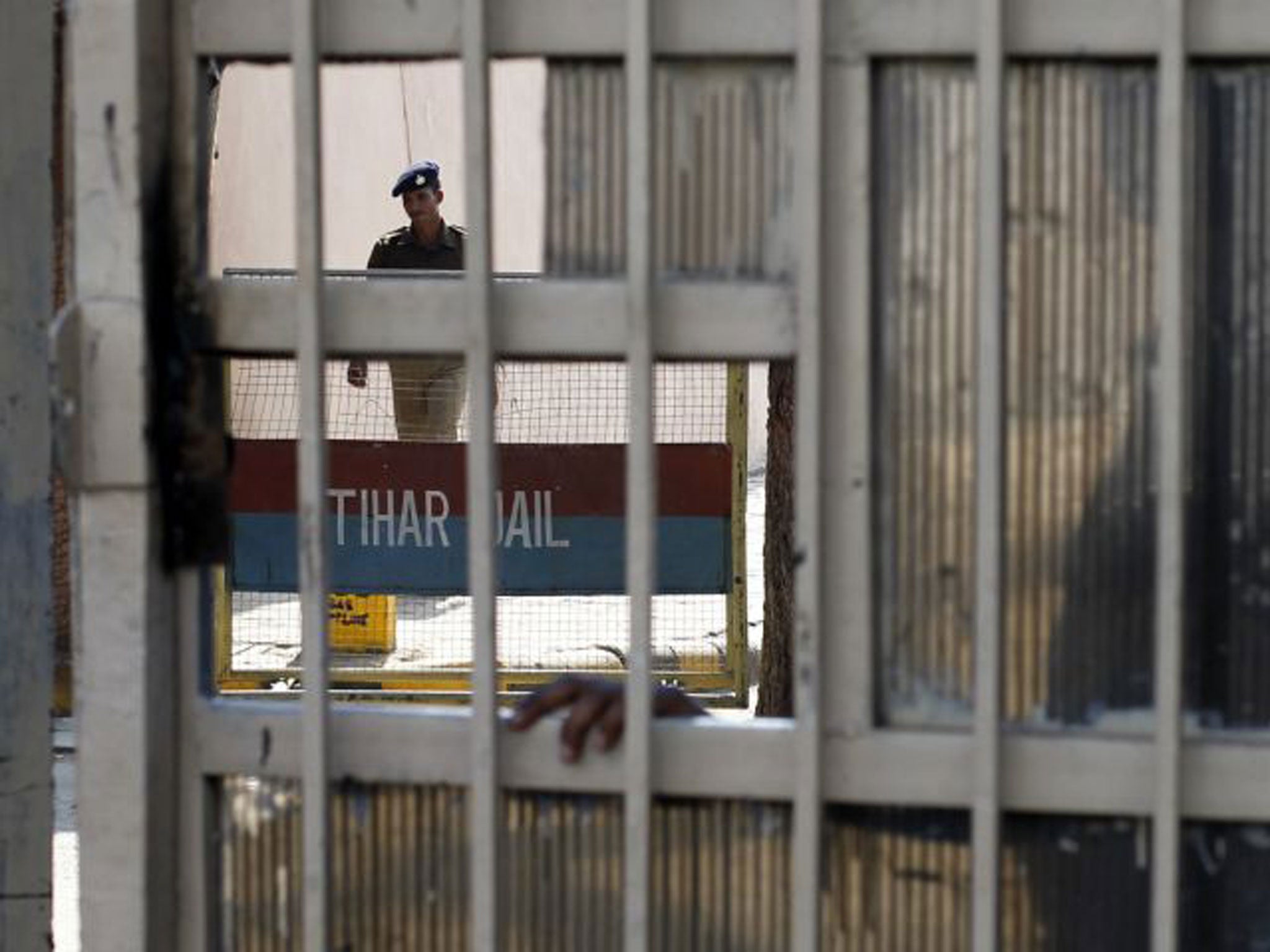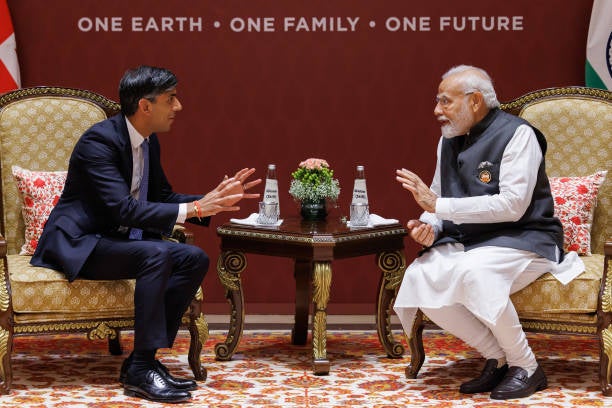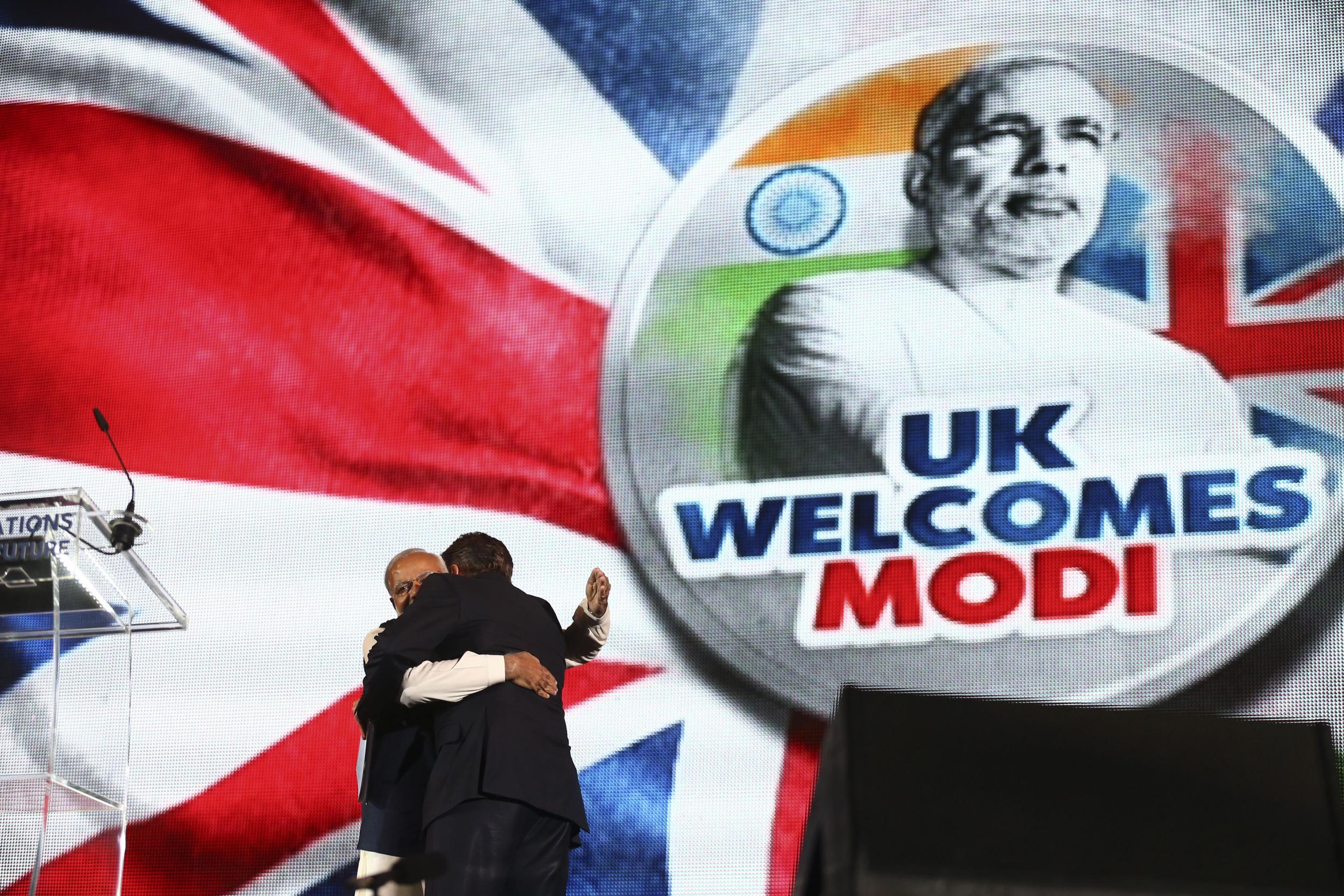Inside the Indian prison ordeal of British citizen Christian Michel, jailed for five years without trial despite Sunak intervention
Exclusive: Speaking out from jail in his first comments to media since his 2018 ‘rendition’ to a notorious prison complex in New Delhi, Michel tells Alisha Rahaman Sarkar that his treatment should serve as a warning to all countries with extradition arrangements with India

Your support helps us to tell the story
From reproductive rights to climate change to Big Tech, The Independent is on the ground when the story is developing. Whether it's investigating the financials of Elon Musk's pro-Trump PAC or producing our latest documentary, 'The A Word', which shines a light on the American women fighting for reproductive rights, we know how important it is to parse out the facts from the messaging.
At such a critical moment in US history, we need reporters on the ground. Your donation allows us to keep sending journalists to speak to both sides of the story.
The Independent is trusted by Americans across the entire political spectrum. And unlike many other quality news outlets, we choose not to lock Americans out of our reporting and analysis with paywalls. We believe quality journalism should be available to everyone, paid for by those who can afford it.
Your support makes all the difference.When British citizen Christian Michel was brought to India more than five years ago, handcuffed and blindfolded on a private jet from Dubai, he could not have imagined that in 2024 he would be staring down the barrel of a sixth punishing summer emprisoned in Delhi’s 45C heat, all without ever facing trial or formal charges.
Mr Michel, a 62-year-old father of three, has been accused of paying bribes to secure a major military helicopter contract with the Indian government as a consultant for AgustaWestland, a British subsidiary of Italian defence manufacturer Finmeccanica. He has denied the allegations and was cleared of any wrongdoing over the deal by the Italian courts, yet was arrested in the UAE and extradited to India over the matter in December 2018.
Speaking exclusively to The Independent from his jail cell in New Delhi’s notorious Tihar prison complex, Mr Michel reveals he has lost 20kg in weight since he was brought to India and suffered from a host of health problems, as well as contracting Covid in prison at the height of India’s pandemic-induced healthcare crisis. He has applied for bail at least 15 times, including an application supported by the British government on health grounds, all of which have been rejected.
Cases progress notoriously slowly through India’s overburdened legal system, which is partly why the country has a law stipulating that a suspect must be released from prison once they have served half of what would have been the maximum sentence if they were convicted. In Mr Michel’s case that was seven years, meaning he should have been released midway through 2021.

That same year, after the deadline passed, the UN Working Group on Arbitrary Detention declared that Mr Michel’s ongoing detention was arbitrary and in contravention of the Universal Declaration of Human Rights. India has rejected the opinion expressed by the UN panel as “biased” and based on “limited information”.
“I am the only foreign national in any of the Commonwealth nations to have been put in jail after renditioning for five years and six months without trial and charge,” Mr Michel writes to Rishi Sunak in his latest dispatch to the British prime minister, seen by The Independent, urging him to take his case to the United Nations. He has written to each UK prime minister since his extradition from Dubai, including letters alleging he was being “abused in a Delhi jail”, but has yet to receive a reply.
The Independent can reveal that Mr Michel’s case was raised by Mr Sunak directly with India’s prime minister Narendra Modi during talks on the sidelines of the India-hosted G20 summit last September. Lord Ahmad of Wimbledon, the Foreign Office minister for south Asia, again raised the matter with India’s home secretary as recently as 22 February.
Yet just one day later, an Indian court ruled once more that Mr Michel cannot be bailed, on the basis that the authorities are investigating a new corruption offence against the Briton which carries a maximum sentence of life in prison. This, the judge ruled, negates Mr Michel’s right to be released after serving half his maximum term.

Aljo K Joseph, the lawyer representing Mr Michel, argues his client cannot be tried for offences other than those he was extradited for, under the “doctrine of specialty” enshrined in Section 21 of India’s Extradition Act 1962. Many countries, including the US and UK, have similar laws preventing new charges from being brought after a suspect’s extradition.
In his written responses to The Independent, relayed via his lawyer, Mr Michel said: “I have finished my sentence without trial, without charges and without bail. International law and the Indian Act of Extradition states that once I am in India, no new offences can be given to me.
"There can be no argument. The world is looking at this. If India gives me new charges, extradition will stop to India ... India will lose its reputation, and if there is no law people will stop investigating.”
Mr Michel repeated allegations that he was met in Dubai before his extradition by senior officials from India’s Central Bureau of Investigation (CBI), who offered him a deal where he would be spared prison if he confessed and turned witness in a corruption case against the Indian government at the time of the AgustaWestland deal in 2010, including “the Gandhi family” and other members of the Congress party, which is now in opposition to Modi’s ruling BJP, including the late MP Ahmed Patel.
“We will make you a witness, you will not have to go to India. If you do not sign, we will take you to India and put you in jail,” Mr Michel claims to have been told by Indian investigators.
“The Dubai prosecutor told me to run to London; I refused. So I chose to be taken to India. I have a problem with giving false witness,” Mr Michel said, adding: “It is this decision that has kept me strong. If I had made a deal, I could not face my children.
“This fight is damaging us both as I would not sign a false confession. Let me go before this whole situation becomes a human rights scandal,” he said, addressing the Indian government.

The CBI has accused Mr Michel, an established arms dealer, of being one of three middlemen involved in the AgustaWestland deal to supply India with 12 of the company’s AWA101 helicopters, typically used to carry important individuals such as military commanders or heads of state. The other two alleged middlemen were Italian business partners Guido Haschke and Carlo Gerosa.
Indian investigators alleged there was an estimated loss of £341.5m to the exchequer in the deal signed on 8 February 2010, for the supply of choppers estimated then to be worth €556m (£476.8m). The deal was flagged as potentially problematic during investigations by Italian officials into alleged cases of fraud by Finmeccanica in 2012.
India’s CBI began investigations in 2013, which was followed by the Enforcement Directorate (ED), which investigates financial crimes, registering a case in July 2014.
The ED filed a preliminary chargesheet in June 2016 that accused Mr Michel of receiving €30m (£25.7m) from the company for the purpose of bribing Indian bureaucrats, politicians and Indian Air Force officials.
His diaries, seized by the Italian police and later handed over to the CBI, allegedly revealed that he paid an estimated sum of £5.32m to 18 companies and individuals, in addition to £12.8m to an unidentified political family.
The ED claimed Mr Michel remitted part of the money he received from AgustaWestland to a media firm he floated in Delhi through his Dubai-based firm Global Services. The agency described the fund routing as “criminal activity”.

Similar payments were allegedly made to various other companies, including Krishnom, a firm jointly owned by former air force chief SP Tyagi, which received £81,823. Mr Tyagi was accused of tweaking the contours of the contract to favour AgustaWestland ahead of the bidding process.
Mr Haschke turned witness in the Italian court case in 2013 but Milan’s Court of Appeals acquitted former AgustaWestland and Finmeccanica executives in 2018, ruling that there was not “sufficient proof” to support a corruption conviction. It meant Mr Gerosa and Mr Michel had no case to answer, with an Italian judge specifically stating that the allegations against Mr Michel were no more than a “hypothesis”.
Mr Michel described himself as a “judicial hostage of India” and feared he might never be “taken to trial ever”.
In all the years he has spent in Tihar, he said speaking to his family has been a “big problem”. “I have called my family three times in six months. The jail phone system does not work. It has been like this since last July. [Telecoms company] MTNL discontinued the VCC [virtual calling cards] so I am fighting for a solution.”
Following an alleged assassination attempt, he was moved to a separate cell in 2019. “Summer is very tough. Food is all boiled vegetables and that’s it, but I do get two eggs a day on a medicinal diet, which helps. I was 86 kg and now I am 66kg,” he said.
He suffers from kidney stones and an inflamed tendon in his right leg, and previously wrote to then prime minister Boris Johnson in 2021 about how he “got e-coli from the water when I caught Covid-19”.
Mr Michel’s lock-up hours are from 6pm to 6am and 11.30am to 3pm. “Lights are kept on 24 hours a day. In the day, they play Hindi prayers for nine hours, which is new.”
Consular staff from the British High Commission in Delhi visit Mr Michel on a regular basis but he has yet to receive a direct response to any of his letters to present or former prime ministers. The government has not openly backed his bail petitions since the 2021 request on health grounds, in which the judge took issue with the idea of foreign intervention in the case.
“I am very disappointed with the British government,” he said. He alleged that Mr Sunak was “very afraid of Modi and will not act”. “I have asked the UK government to take up my UN working group opinion that I should be released at once, but the UK will not press.”
His lawyer, Mr Joseph, described Mr Michel as a “personal prisoner of prime minister Narendra Modi”.
“After the United Nations Working Group recommendation, the UK, being a member of UN Security Council, had the duty and responsibility to take the recommendation to the logical conclusion,” he said.
“The inaction on the part of His Majesty’s Government raises suspicion and the responsibility will be on the prime minister, Rishi Sunak, and present foreign secretary, David Cameron.”
A UK government spokesperson told The Independent: “We continue to provide consular assistance to Mr Michel and his family and have consistently raised his case directly with the government of India.”
A spokesperson for the CBI declined to comment on the ongoing case.
Mr Michel said his five years – and counting – have at least given him ample time to reflect on his life. “When I get out of jail, I will be a better man than I was,” he said. “I know what to do with the rest of my life.”
Join our commenting forum
Join thought-provoking conversations, follow other Independent readers and see their replies
Comments